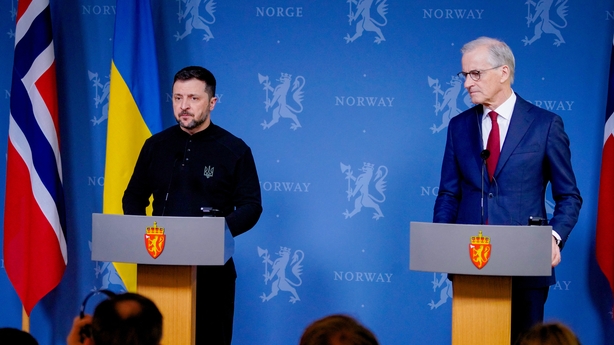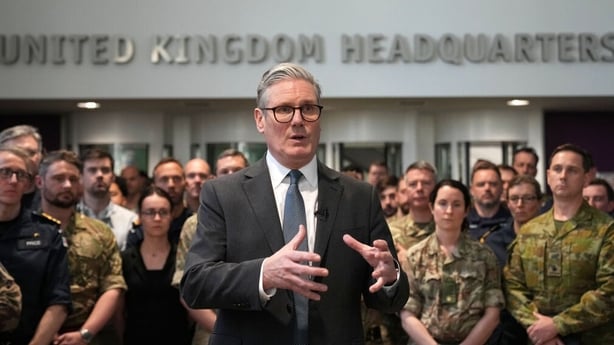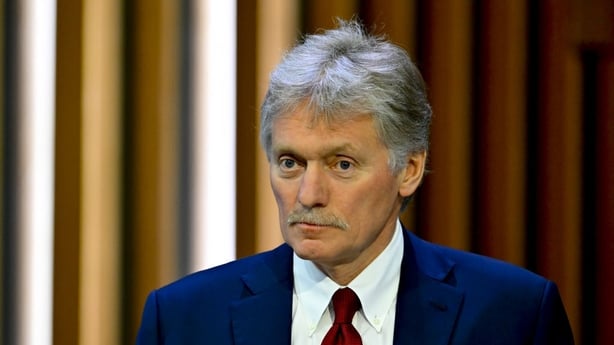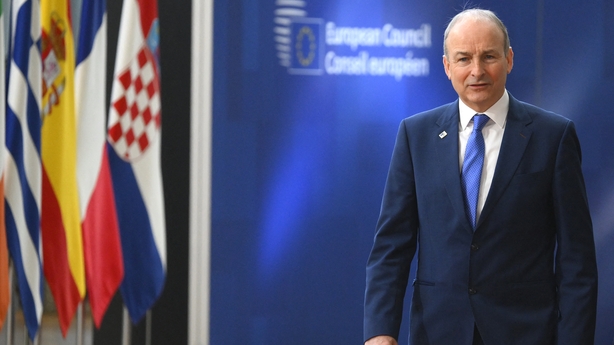Ukrainian President Volodymyr Zelensky has urged EU leaders to step up weapon supplies to Ukraine and keep pressuring Russia, as officials from Kyiv and Moscow readied to hold fresh talks with the United States next week.
Europe is scrambling to weigh on the outcome as US President Donald Trump forges ahead with Russia on ending its war on Ukraine, and top military brass gathered in London to thrash out how to police any peace deal.
British Prime Minister Keir Starmer said afterwards that the plans of the so-called "coalition of the willing" around Ukraine were "coming together".
The London meeting came after Mr Zelensky addressed an EU summit in Brussels via video call, charging that "despite Putin's words... nothing has changed".
Mr Zelensky said a new Russian strike had "hit our energy infrastructure" last night, even after Russian President Vladimir Putin agreed with Mr Trump to halt such attacks.

The Kremlin leader must "stop making unnecessary demands that only prolong the war", he added, calling on the EU to ramp up arms deliveries and keep sanctions in force.
In Norway, Zelensky said Ukrainian and US officials would meet in Saudi Arabia on Monday to build on US-led efforts to secure a speedy end to the Russian invasion, now grinding into its fourth year.
The Kremlin had earlier confirmed Russian officials would also hold talks with the US side in Saudi Arabia on the same day.
Power plants
Mr Zelensky and Mr Putin both held talks with Mr Trump this week, and have indicated they are prepared to halt attacks on energy infrastructure for 30 days.
But there has since been no let-up in fighting. Both countries reported a barrage of new drone strikes overnight, as questions remained about the exact details of any lasting peace deal.
Mr Trump, who has spooked European and NATO allies by his overtures to Mr Putin and lukewarm commitment to European security, suggested last night the United States could take over and run Ukraine's power plants.
We need your consent to load this rte-player contentWe use rte-player to manage extra content that can set cookies on your device and collect data about your activity. Please review their details and accept them to load the content.Manage Preferences
But today, Mr Zelensky poured cold water on the idea, saying he could not legally negotiate ownership of the occupied Zaporizhzhia nuclear power station.
"If they want to take it back from the Russians, if they want to modernise it, invest -- this is a different question, this is an open question, we can talk about it," Mr Zelensky added.
Mr Putin has made an end to further Western military support for Ukraine a red line for Russia agreeing to a long-term truce.

Meanwhile, some 30 military leaders from countries keen to help secure any lasting ceasefire in Ukraine huddled at a military base near London.
Afterwards, Mr Starmer reported progress had been made, saying the talks were focused on turning the "political intention" of security guarantees for Ukraine into "reality".
"Whether that's in relation to what might happen at sea or air or defending borders, and those plans are coming together," he told several of the military commanders in attendance and British soldiers at the base.
Mr Starmer has spearheaded international efforts with French President Emmanuel Macron to police any truce in Ukraine, and both say they are willing to put their own troops on the ground.
Russia, however, has said it will not accept the presence of any NATO troops in Ukraine and Washington has not yet indicated whether it would be willing to provide a security backstop.
Despite Mr Trump going cold on support for Ukraine, the United States is looking at helping Kyiv to acquire additional air defence systems to counter Russia's ballistic missiles.
"This is extremely important," said the EU's top diplomat Kaja Kallas, who is pushing member states to meet a Ukrainian request for two million shells worth five billion euros ($5.4 billion), though no headway was made on the plan at Thursday's summit.
According to a White House readout, Mr Zelensky yesterday asked Mr Trump for help in obtaining US-made "Patriot missile systems" to bolster its current stock provided by the United States, Germany and Romania.

Kremlin spokesman Dmitry Peskov questioned whether Europe, where governments are looking at steep increases in domestic defence spending, was committed to ending the fighting.
"For the most part, the signals from Brussels and European capitals concern plans to militarise Europe," he said.
Ukraine's air force said today that Russia launched 171 drones over its territory overnight, with two people killed in the northeastern Sumy and Kharkiv regions and several others wounded.
Russia meanwhile said its air defence units had shot down 132 Ukrainian drones in several regions across the country. Two people were wounded, it added.
White Paper for European Defence - Martin
Speaking about EU plans to increase its spend on defence, the Taoiseach Micheál Martin said the White Paper for European Defence is a significant document that would need discussion and reflection.
Mr Martin said ahead of the summit that the document - which was published yesterday - focused on the capacities of individual states to allocate additional funding.

"We've been supportive of the measures that the President of the Commission has announced. There are a lot of issues around procurement capacities within Europe and the capacity of the European defence industry to respond to this increased expenditure," he said.
On the broader economic front, he said the wise thing to do would be to await the US presentation in relation to tariffs from 2 April.
He said time would then be needed to give a comprehensive response.
"Our view is that Europe has to be strategic in its response, particularly where we enjoy surpluses and so on," he said.
The EU's leaders are facing a packed agenda given recent developments on the war in Ukraine, the breakdown of the Gaza ceasefire, an upsurge in violence in Syria and Mr Trump’s trade war which is already hitting Europe
Paschal Donohoe, as president of the Eurogroup, and ECB President Christine Lagarde will brief leaders on the European economy.
That issue is being dominated by the report by Mario Draghi, Ms Lagarde's predecessor, on how to boost European competitiveness and the need for a so-called capital markets union to provide Europe with deeper and more liquid capital markets.






